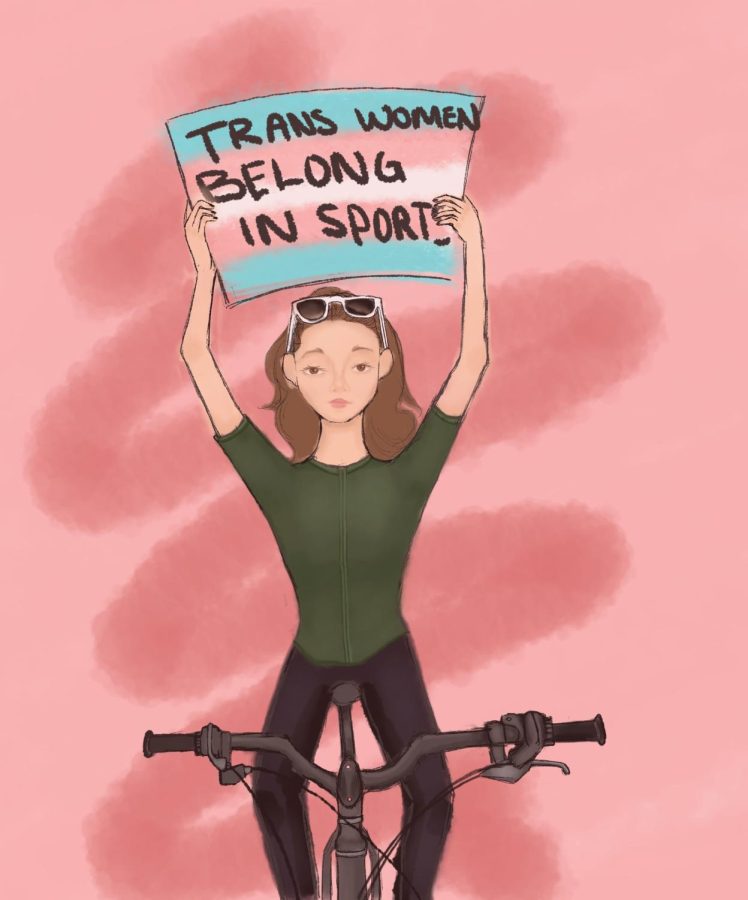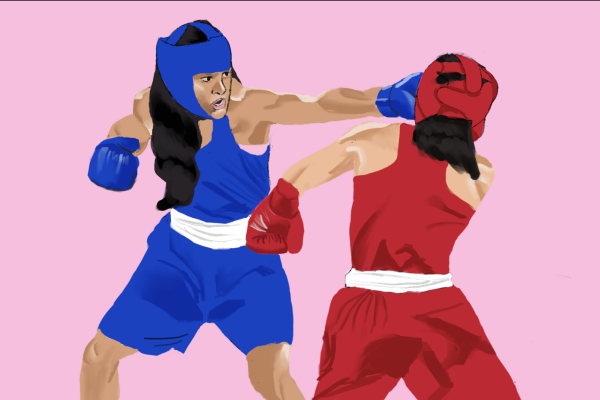Transgender Women in Sport
A big topic that is often talked about in the world of sport is the participation of transgender women. The number of transgender athletes in the world is increasing as the transgender community grows. As many of these athletes are at a high level, the question is in what category should these athletes compete. As of 2022,the policy for competing in the Olympics is that the testosterone levels of a transgender woman must be lowered to 10 nmol/L, but these policies can vary between different sport federations. An even bigger question is how to balance inclusivity, fairness and safety.
There are a lot of people who think that allowing transgender women to participate in the same category as cisgender women is unfair, as transgender women have a higher testosterone level than cisgender women. Someone who has spoken out about her opinion against transgender women inclusion is three time Olympic gold medalist Nancy-Hogshead Makar. She once said in an interview, “When it comes to competitive sports is where I would draw the line. I do think that transgender people have a really hard time in society, and I want that to be easier. But we can’t ask women to give up what we’ve worked so hard for, so that transgender women are able to compete.” An athlete who is currently fighting for her right to participate in women’s events is British cyclist Emily Bridges. In April, she was banned from participating in the UK National Omnium Championship, just weeks after she had been confirmed eligible to compete according to the British cycling regulations. Former Prime Minister of the UK, Boris Johnson commented in an on camera interview regarding the case of Bridges, “I don’t think ‘biological males’ should be competing in female sporting events.” In response to this Bridges said in an interview, “The response after that was as expected, I had threats of physical violence made against me by complete strangers online. I’m scared a lot of the time about being who I am in public. Is someone going to recognise me? They were real concerns and it was a real fear that I had after the comments were made, and it was scary. I was scared.”
There is also a second side to the whole situation which are the people who feel empathy for Bridges, and say that her being banned from the competition was not fair. One person who had expressed their opinion on the matter is Sally Munday, the UK Sport chief executive who said, “I have huge empathy for Emily, I have huge empathy for the women who she would have been potentially competing against.” Munday shared in an interview with BBC. She added that she would even fund Bridges if she was given permission to participate in top competitions.
The British triathlon has a new policy that is going to be put into place starting on January 1 2023, which creates an open category for transgender athletes to be able to compete in. This policy will also count at international competitions and only cis-gender women will be allowed to compete in the women’s category. This idea was designed to ensure that everybody has a place to compete, but it is fair for everyone participating.
There are a lot of different opinions regarding the participation of transgender women in sport, but as the subject is understudied there is no right or wrong answer. There is still a lot of controversy around whether trans women should or shouldn’t participate in the women’s category or not. Emily Bridges explained in the interview, “This doesn’t just affect me, this affects other people. It’s so unfair to not have anything.” Other athletes like US swimmer Lia Thomas and weightlifter Laurel Hubbard from New Zealand face the same situation, along with a lot of other athletes. However, “Transgender women are the current punching bag in society and are the targets of the culture war,” as said by Emily Bridges, as there is a lot of back and forth regarding what is right and what is wrong. In the coming years as the transgender community grows, the world of sport will have to find the right answers regarding the issue.
Hi, My name is Agnese and I am a student in Year 11. This is my 4th year at ISL and my 1st year as a writer for The High. I am Italian and have been writing...
It is my third year as an illustrator in the High,








Pucci • Nov 11, 2022 at 15:04
Very interesting. Well done!